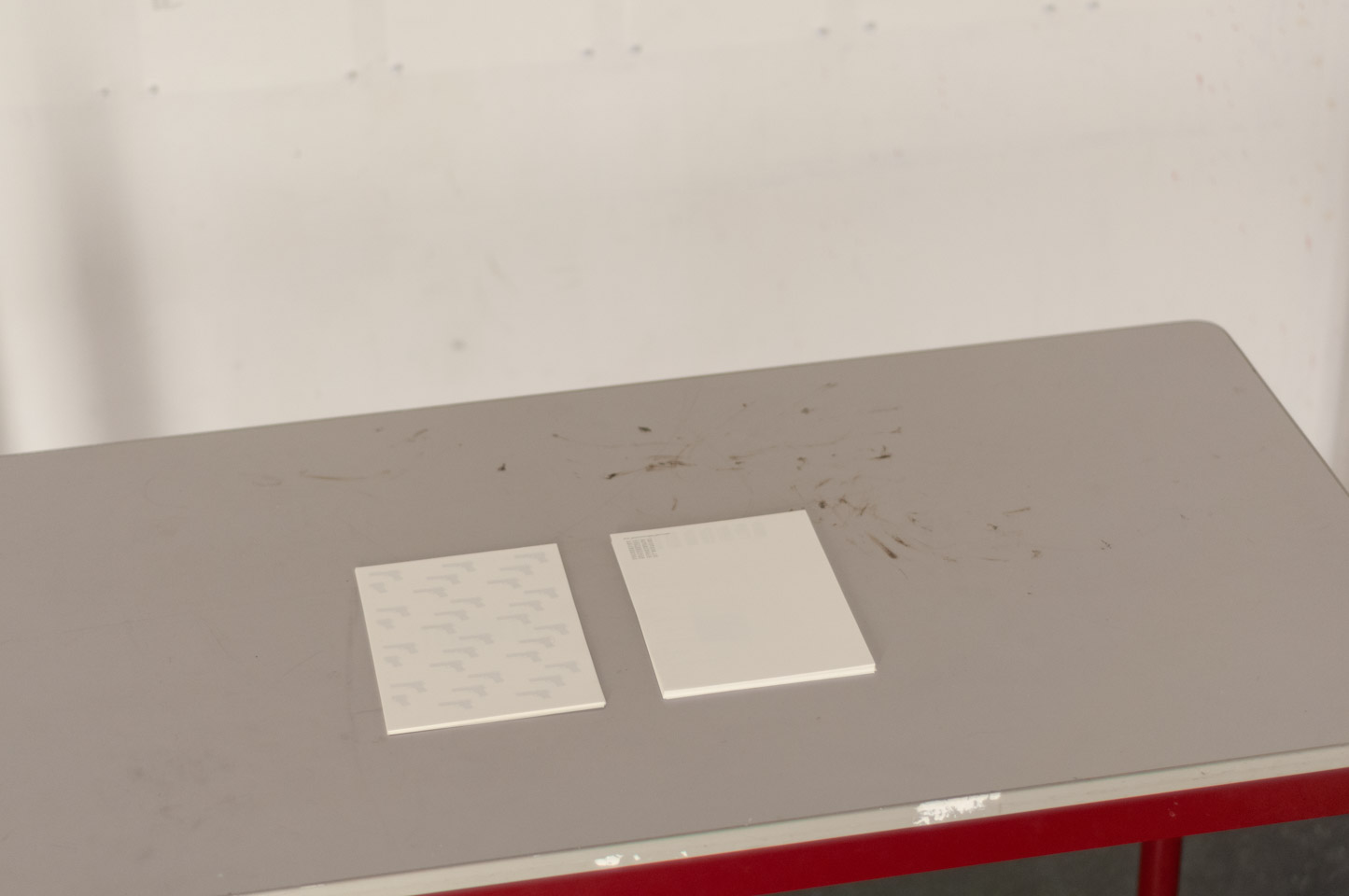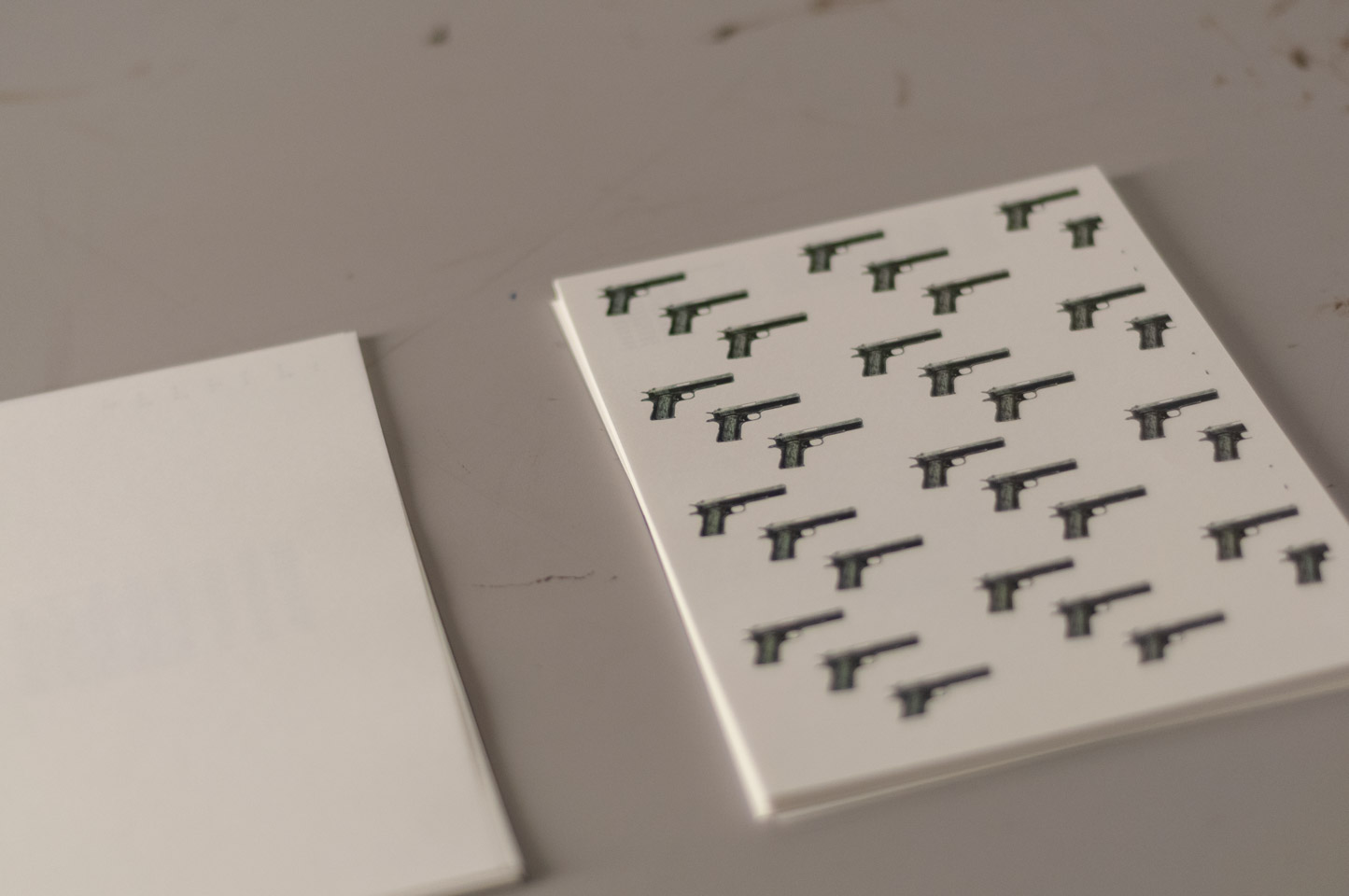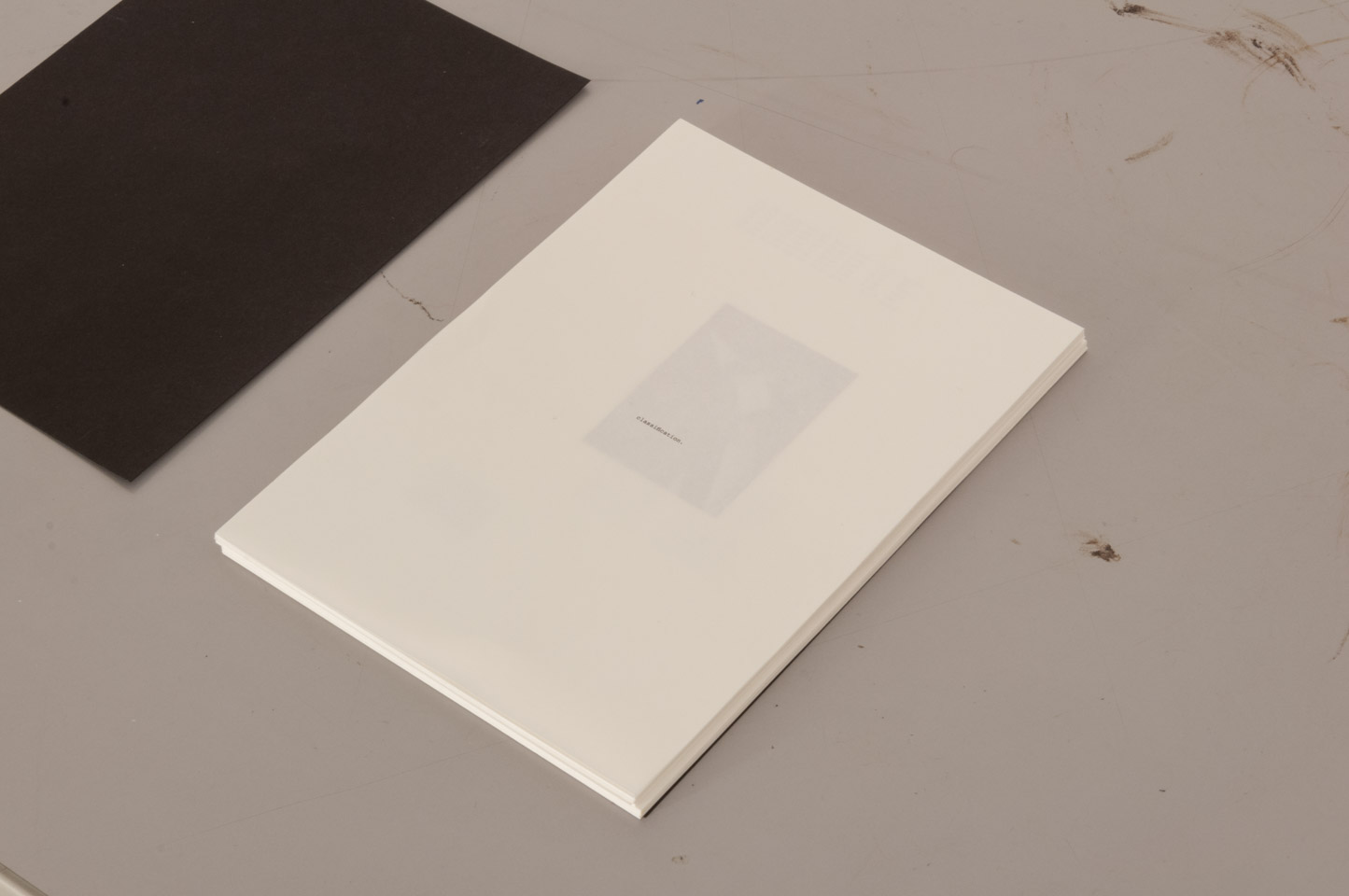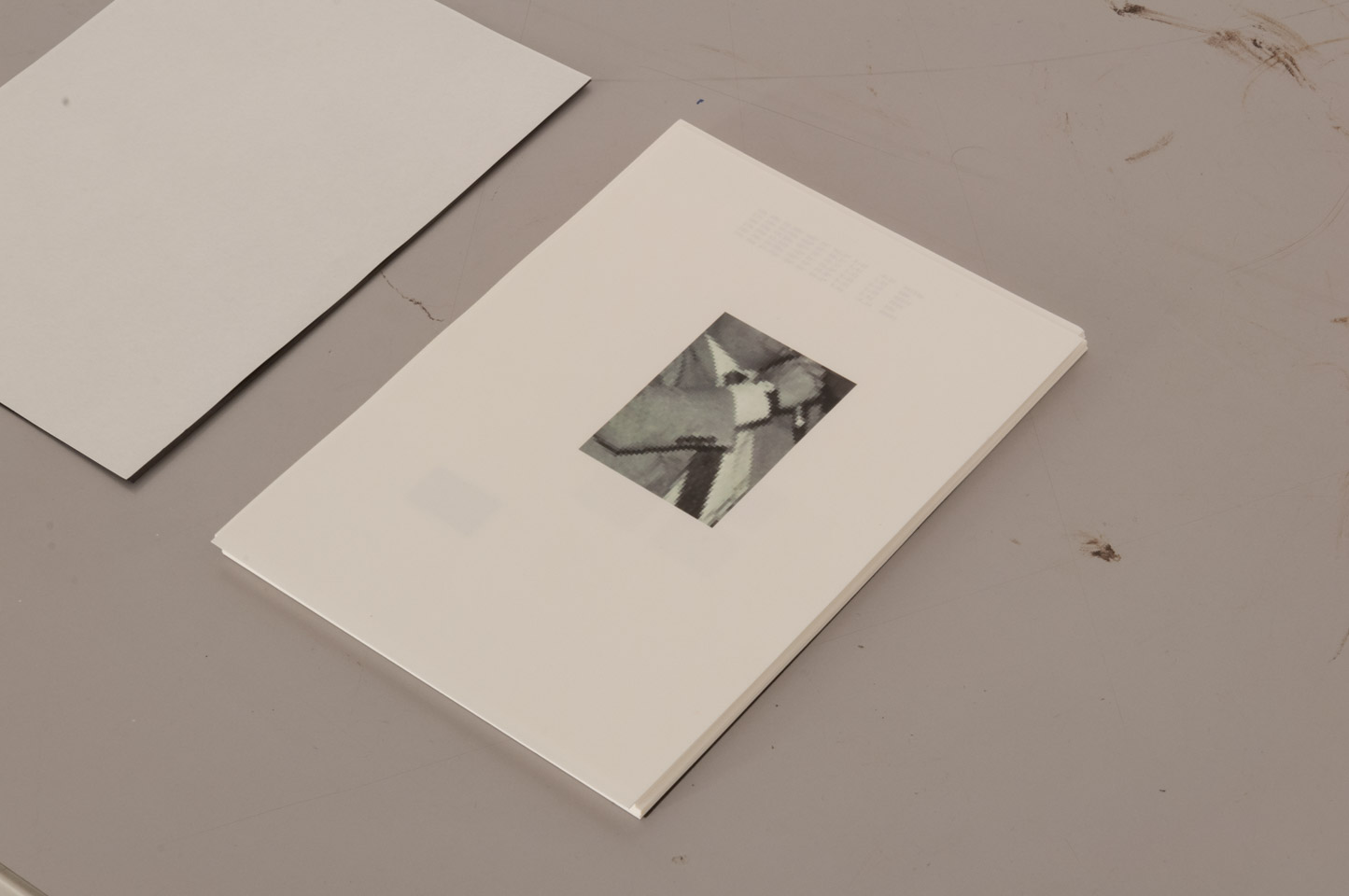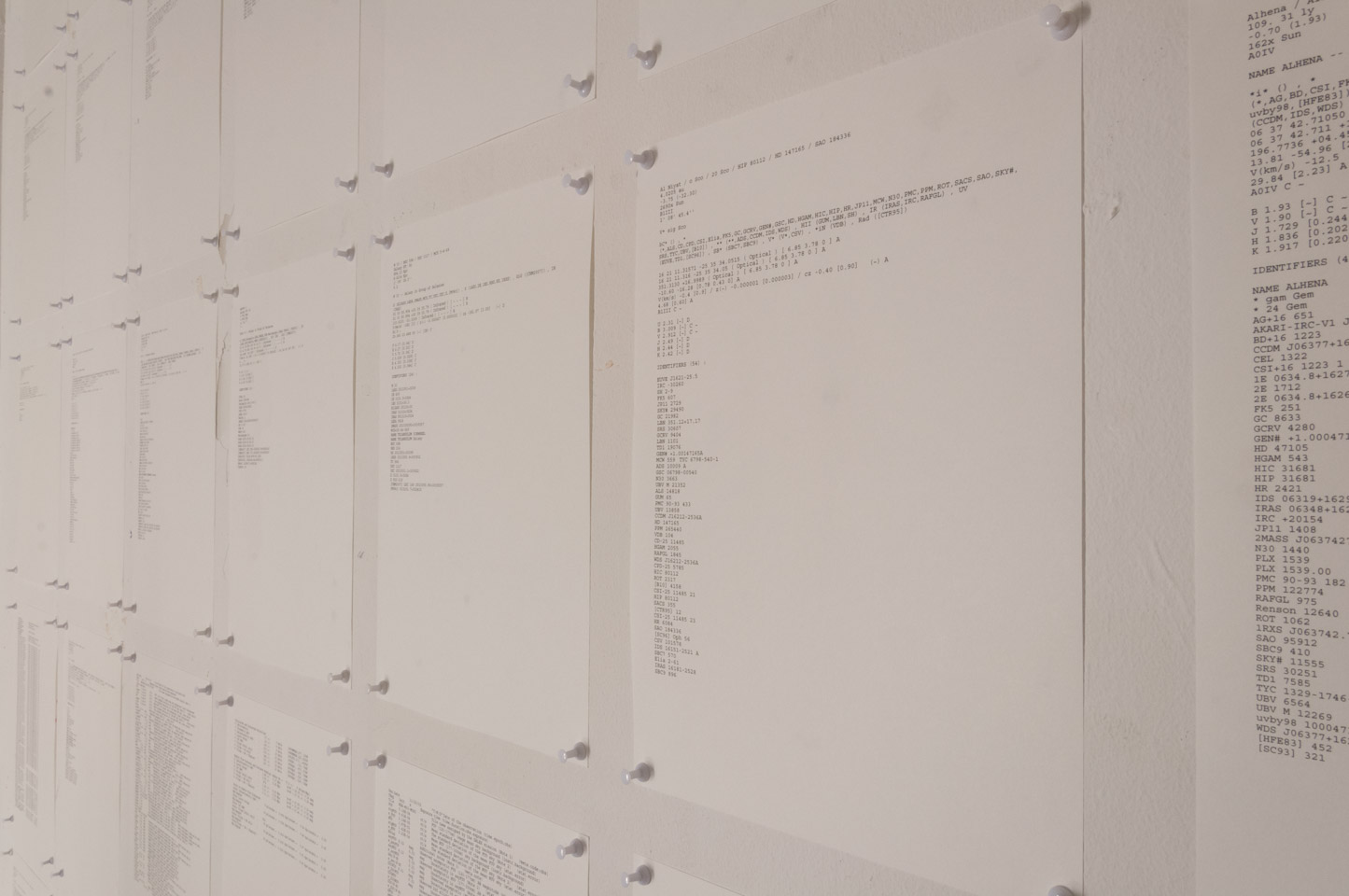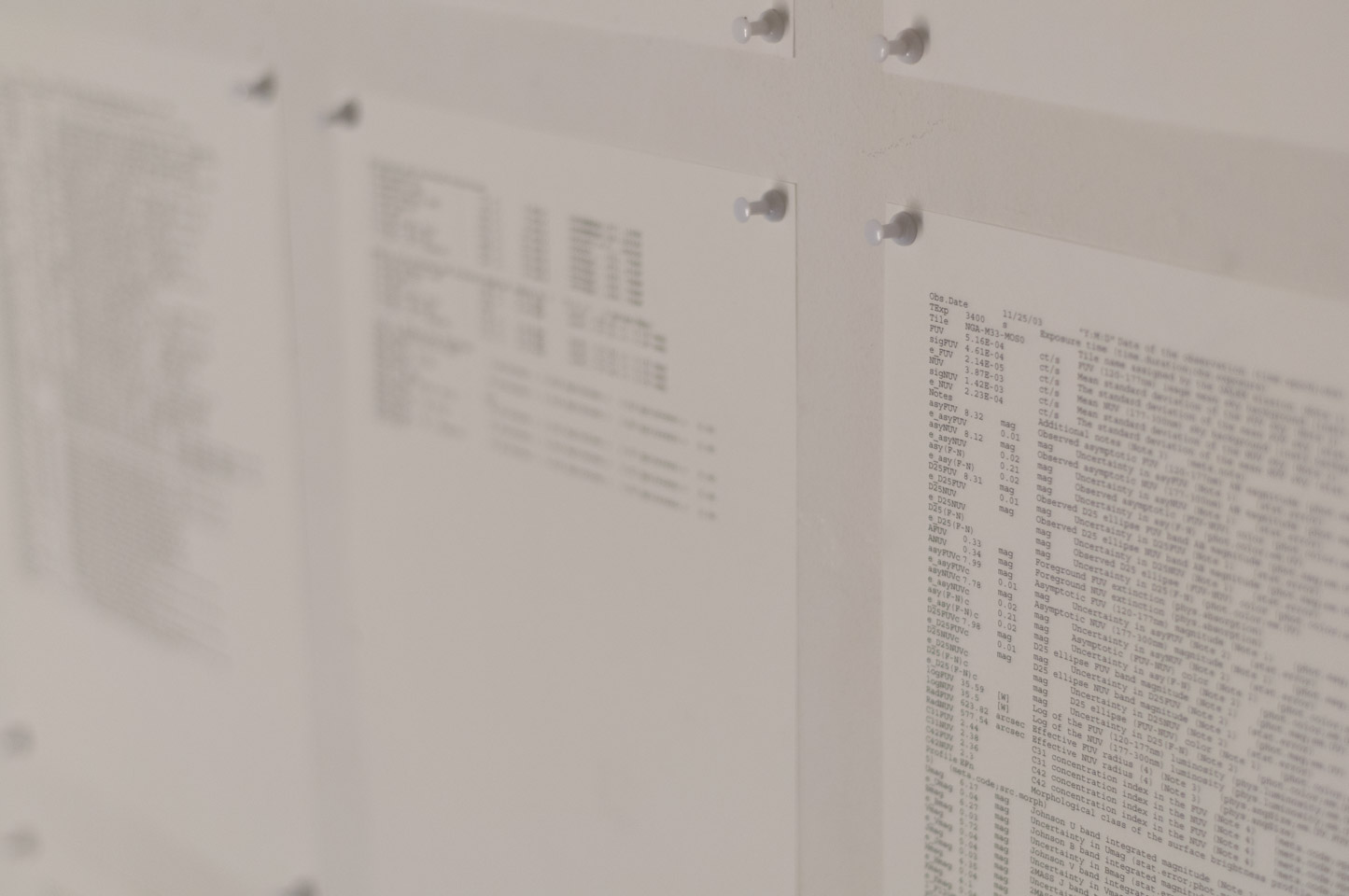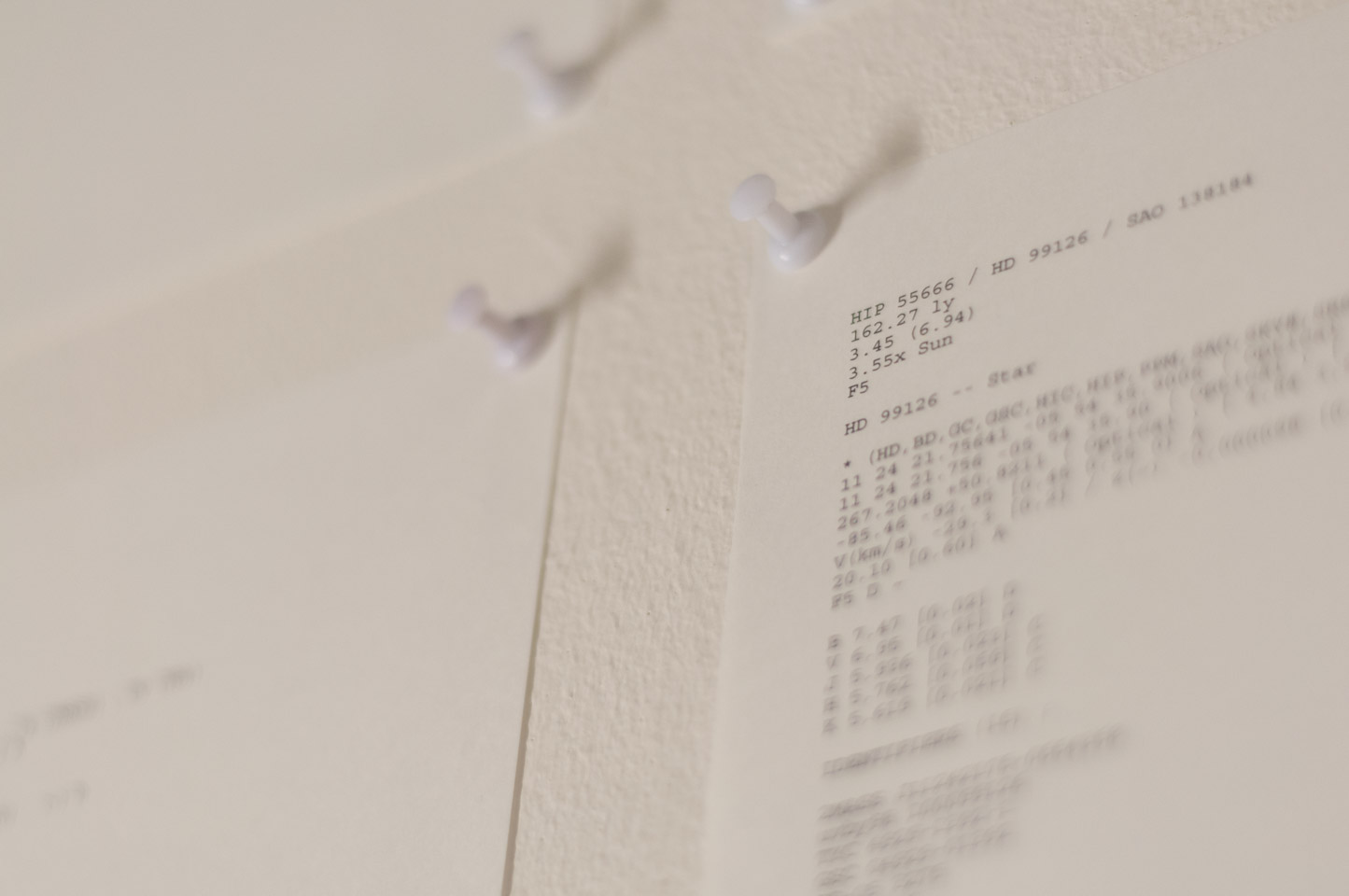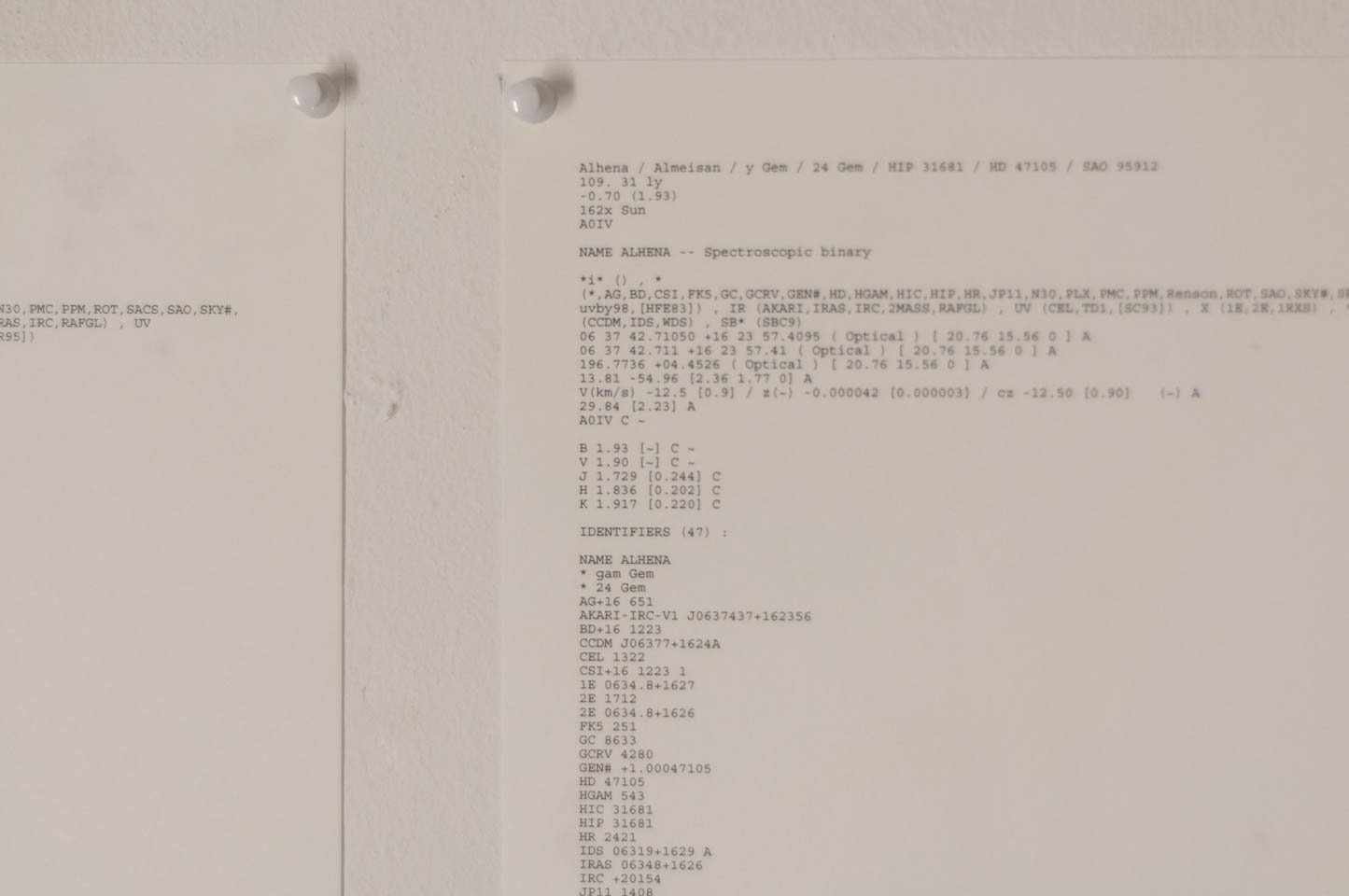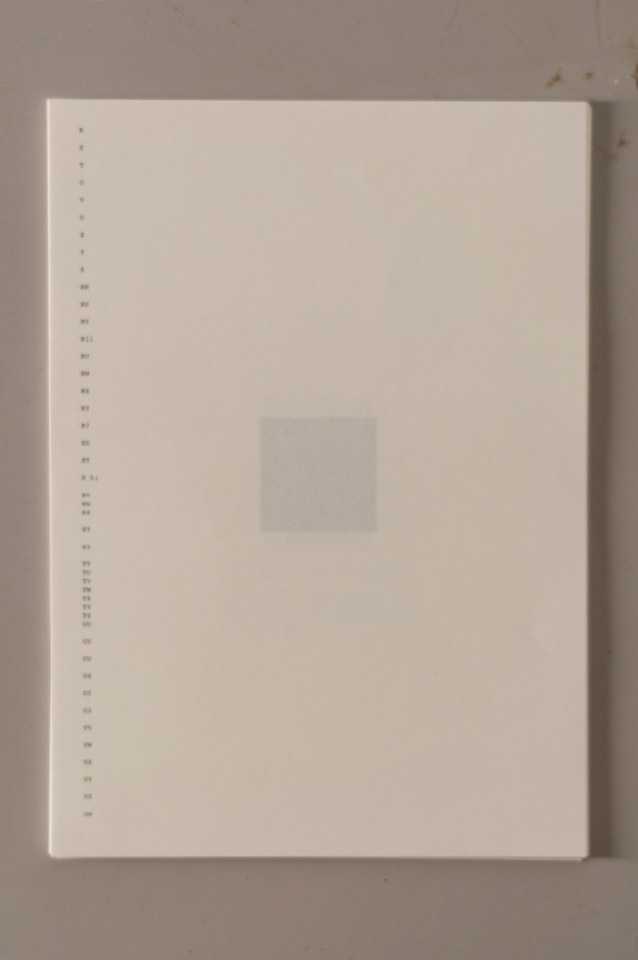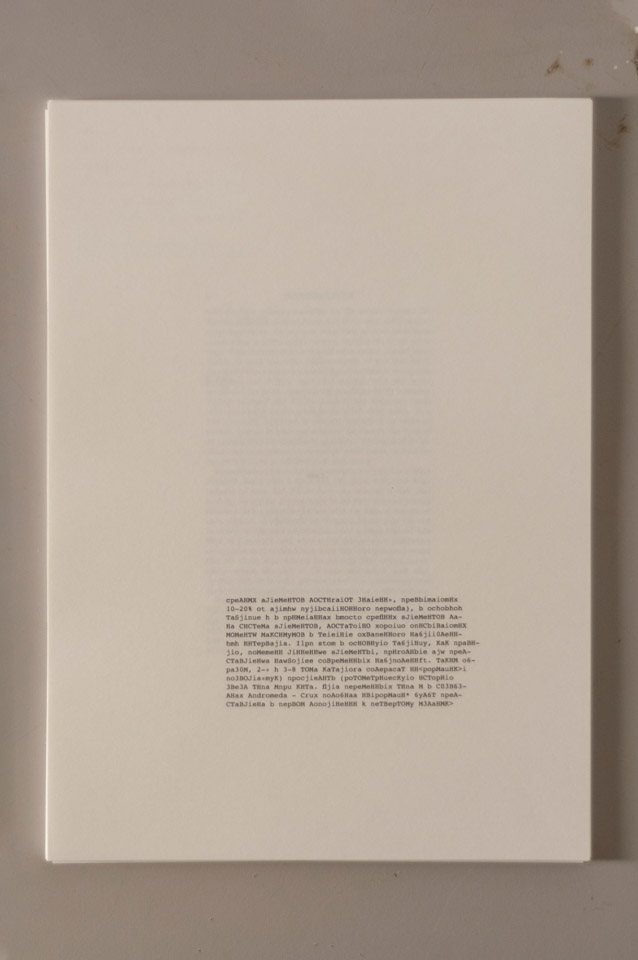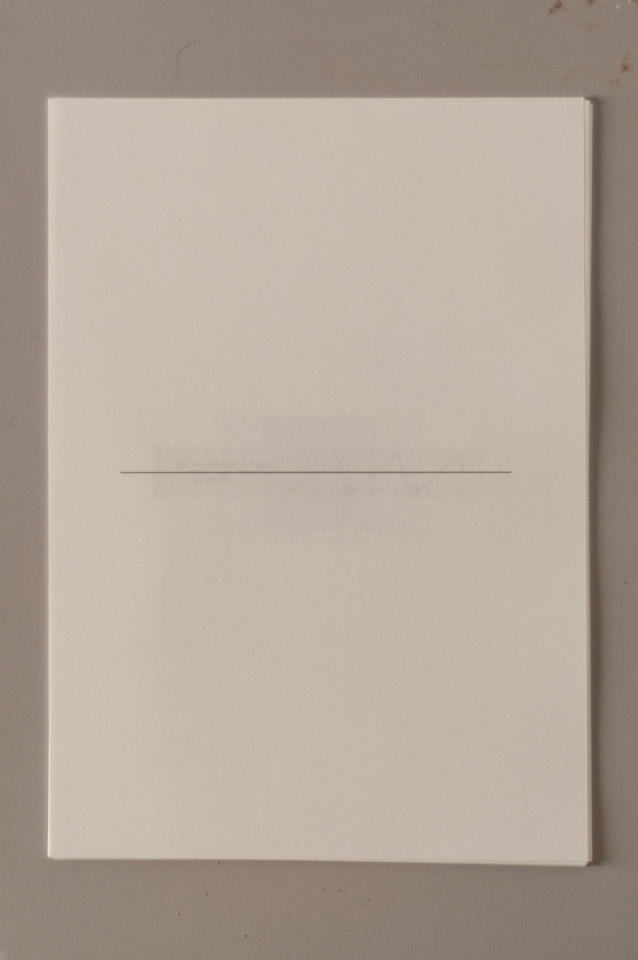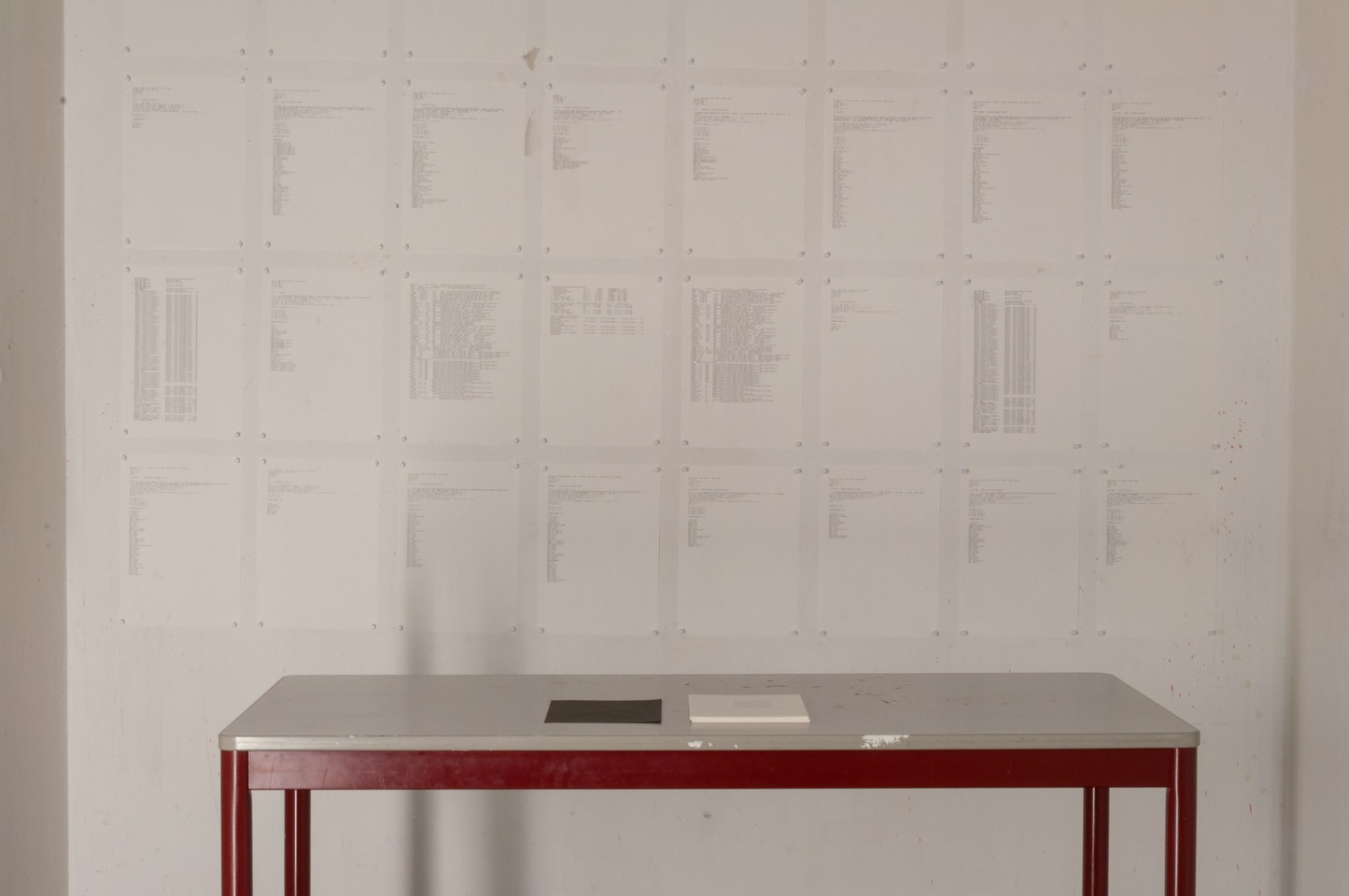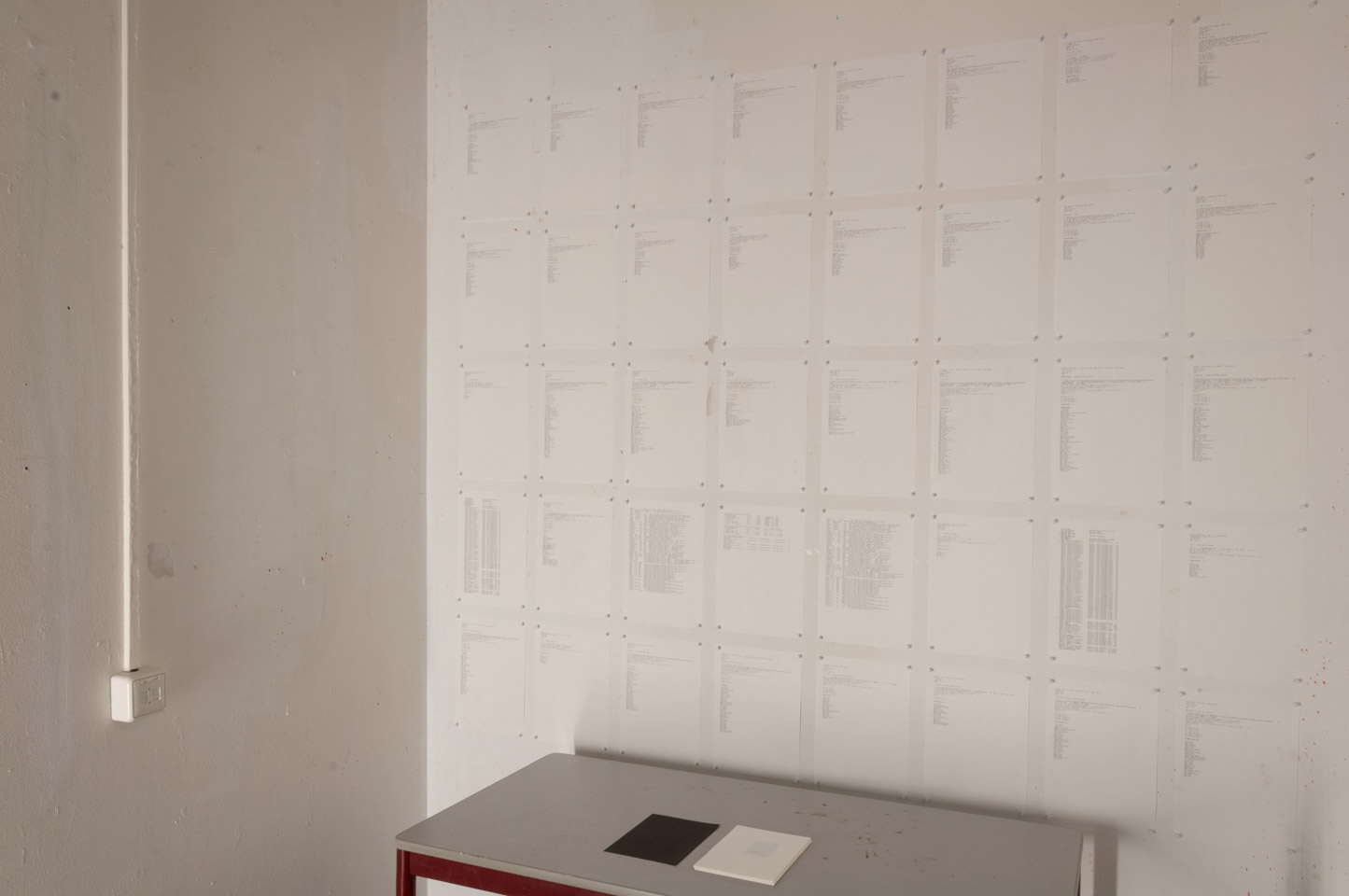Redactor
Installation, Manifesto
Various Printed Data on Paper, Various Dimensions
2012
Redactor functions as both an installation and a manifesto, presenting a speculative study environment designed for a a redactor of data within a fictional future where fragmented, algorithmically altered, or procedurally generated data is elevated to the status of poetry. Situated at the intersection of speculative design and critical inquiry, the project interrogates the evolving relationship between human cognition and computational systems, framing data not merely as a tool but as an aesthetic and ideological force. By constructing a space where astronomical phenomena and digital ephemera coexist, the work challenges conventional hierarchies of knowledge, proposing an alternative framework in which randomness and distortion become generative principles.
Central to the installation is an immersive cartographic experience derived from a virtual catalog of cosmic entities—star systems, black holes, nebulae—juxtaposed with traces of early internet iconography, including fragmented IP addresses, corrupted datasets, and obsolete interface symbols. This synthesis of cosmic vastness and digital granularity creates a tension between the ordered logic of astrophysical structures and the chaotic entropy of information systems. Astronomical observation reports, rendered illegible through deliberate obfuscation, coexist with glitched visualizations, situating the viewer within a liminal space where legibility is perpetually deferred. The environment evokes the mechanics of a computational processor, with inputs and outputs stripped of contextual meaning, reducing interaction to a binary exchange of unprocessed data.
This functional austerity transforms the space into a critique of efficiency-driven systems, foregrounding the dissonance between human interpretive frameworks and machine logic. Clustered data groups, algorithmic voids, and temporal dislocations generate an atmosphere of systemic instability, positioning the viewer within a speculative data dystopia. Errors and omissions are not anomalies but foundational elements, emphasizing the fragility of meaning in systems governed by procedural generation. Timelessness pervades the environment, as datasets float in non-linear sequences, resisting narrative coherence.
As a manifesto, Redactor employs this disorientation to interrogate contemporary dependencies on data curation and algorithmic authority. By recontextualizing malfunction and noise as poetic artifacts, it proposes a counter-narrative to techno-utopian ideals, questioning the neutrality of data-driven epistemologies. The redactor’s study room becomes a metaphor for emerging cognitive architectures, where the boundaries between creative exploration and systemic control blur. Through its fusion of cosmic abstraction and digital residue, the work frames data not as a passive resource but as an active, often destabilizing force—a medium through which the tensions between human agency and computational determinism are both revealed and reimagined.
